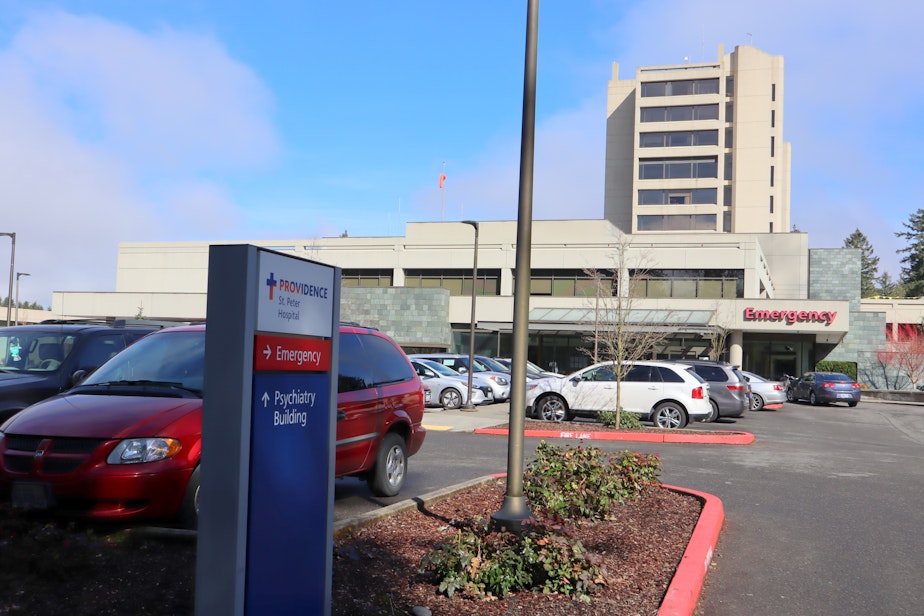Washington state Covid-19 hospitalizations still at ‘sobering’ levels

Covid-19 hospitalizations remain at high levels in Washington state, straining the health care system. That’s according to hospital leaders who addressed reporters at a Monday briefing.
“Things are still very bad,” said Taya Briley, executive vice president of the Washington State Hospital Association.
“While these numbers are steady, they are still very sobering. We are in the midst of the worst peak of Covid cases that we have experienced since the beginning of the pandemic."
There were 1,673 Covid-19 patients in hospitals around Washington as of Monday, compared to 1,674 patients last week, officials said. Briley said hospitalizations could be at the beginning of a plateau, but it’s too early to tell.
Briley said the impact of large events in the state like fairs, Labor Day celebrations, and school events, are still unknown.
Hospitals are treating a greater number of younger patients, according to Briley. She also said the number of patients on ventilators is trending up.
More than 95% of Covid-19 patients are unvaccinated, Briley said. Those who are vaccinated and hospitalized usually have an underlying condition, she said.
Sponsored
Hospital leaders emphasized that the influx of Covid-19 patients is taking a toll on health care workers, and impacting patients who need care for other reasons. Surgeries are being canceled and care is being delayed in some cases.
“Our [emergency department] volumes remain large and so we have stood up some alternative care spaces both in conference rooms and classrooms, and in hallways as we continue to navigate this surge,” said Darin Goss, chief executive of Providence Health Southwest service area.
Officials say no hospital in Washington state is functioning under what’s known as “crisis standards of care,” which has been instituted at some hospitals in Idaho.
“Are you having to deny lifesaving treatment to one patient in order to give it to another patient? That is a good way of knowing if you are in crisis standards of care, and we are not there,” said Briley.
Hospital leaders say they’re working hard to avoid slipping into that level of scarcity and so far have managed to keep hospitals across the state functioning by moving patients around to other facilities that may have more staff or beds.
Sponsored
But they describe the current situation in the state as challenging and “fragile.”
Hospital leaders continue to plead with the public to get vaccinated and do everything they can to remain out of health care facilities. At the same time, some health care workers remain unvaccinated.
As the deadline for the state's Covid-19 vaccine mandate inches closer, there's been an uptick in the number of health care workers across Washington getting their shots, officials said.
The state hospital association does not have an overall number on vaccination rates among health care workers in the state. But Briley said she has heard anecdotally that rates vary widely from place to place.
Sponsored
"We have some facilities that are, you know, in the 80s, close to 90%, we have others that are at this point unfortunately not very vaccinated at all … So it's a very wide range."
Briley said it’s still unclear what the ultimate impact of the mandate will be.
At some hospitals there have already been a few resignations, according to people speaking at the briefing.
There are some concerns that the current staff shortage could potentially be exacerbated.
Health care workers have until October 4 to get a final dose of vaccine.




